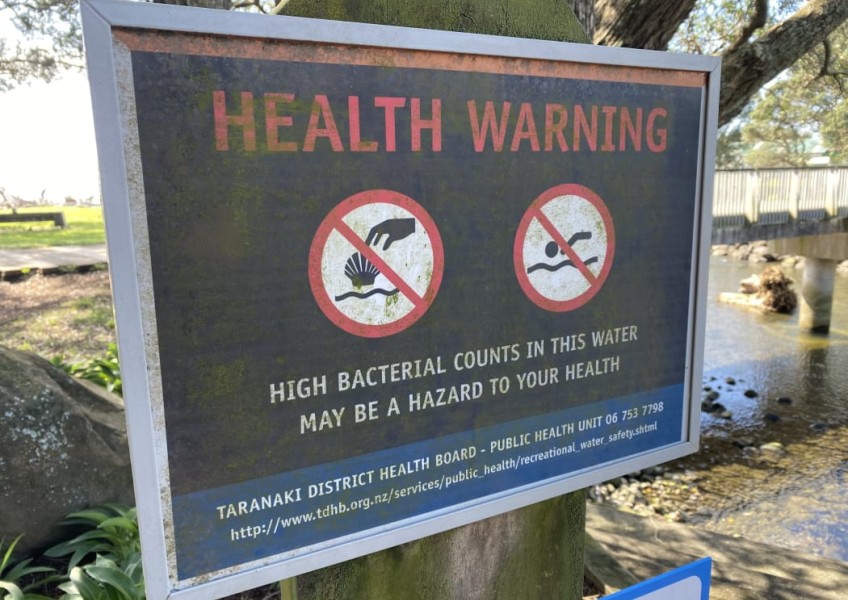80% of NZ's low-lying lakes and rivers 'poor' or 'very poor' quality

Some river mouths have permanent signs warning of health risks from bacteria loads where water birds have added to agricultural impacts. Photo: Te Korimako o Taranaki
Environmental testing shows rivers and lakes in low lying areas of the country are generally in a bad state.
Land, Air, Water Aotearoa, known as LAWA, is a collaboration between regional councils, government, and science organisations.
LAWA has today revealed monitoring results for 1727 rivers and lakes.
Anyone is able to check the results of freshwater monitoring in their region on the LAWA project's environmental data website.
LAWA spokeswoman Nicole Taber said more than 80 percent of lowland lakes were of a substandard quality.
"So there is a real mixed picture, New Zealand has got some of the clearest and best quality water in the world, but we also know that there are areas that are very much under pressure."
LAWA lake science lead Dr Jane Groom said the freshwater monitoring showed the difference between high and low lying lakes.
"In our analysis we found 82 percent of monitored lowland lakes are in a poor or very poor condition, meaning they are nutrient enriched with an increased likelihood of algae bloom events," Groom said in a statement.
It is hoped that people will use the interactive map to find information about the state of lake health by looking at information about the history of their "nutrients, algae, bacteria, and water clarity", she said.
Water quality in rivers and streams is likely to be worse in areas which have been highly modified, whether because of urban environments or pasture, the scientists say.
LAWA river science lead Dr Coral Grant said the data shows that two-thirds of river sites monitored for E coli were graded D or E which meant that the predicted infection for anyone who had contact with that water was 3 percent on any given day.
"There is no evidence of positive change in the proportion of sites graded poorly for E. coli at a national level, but there are individual sites that show signs of improvement, so change is possible," Grant said in a statement.
In response to the survey, the Green Party has called for tighter rules on synthetic fertiliser use.
Green MP Eugiene Sage said the government needed to urgently limit and eventually phase out synthetic fertiliser use, implement the intensive winter grazing rules to reduce nutrient pollution and sediment run-off.
"Synthetic fertiliser use enables a big increase in stock grazing and in animals," she said. "It's the key for the dairy intensification and if we reduce it, we reduce the nutrient pollution of aquifers, rivers and lakes."
Sage said without urgent action, the goal of ensuring the next generation could swim in the rivers of Aotearoa would soon be out of reach.





















